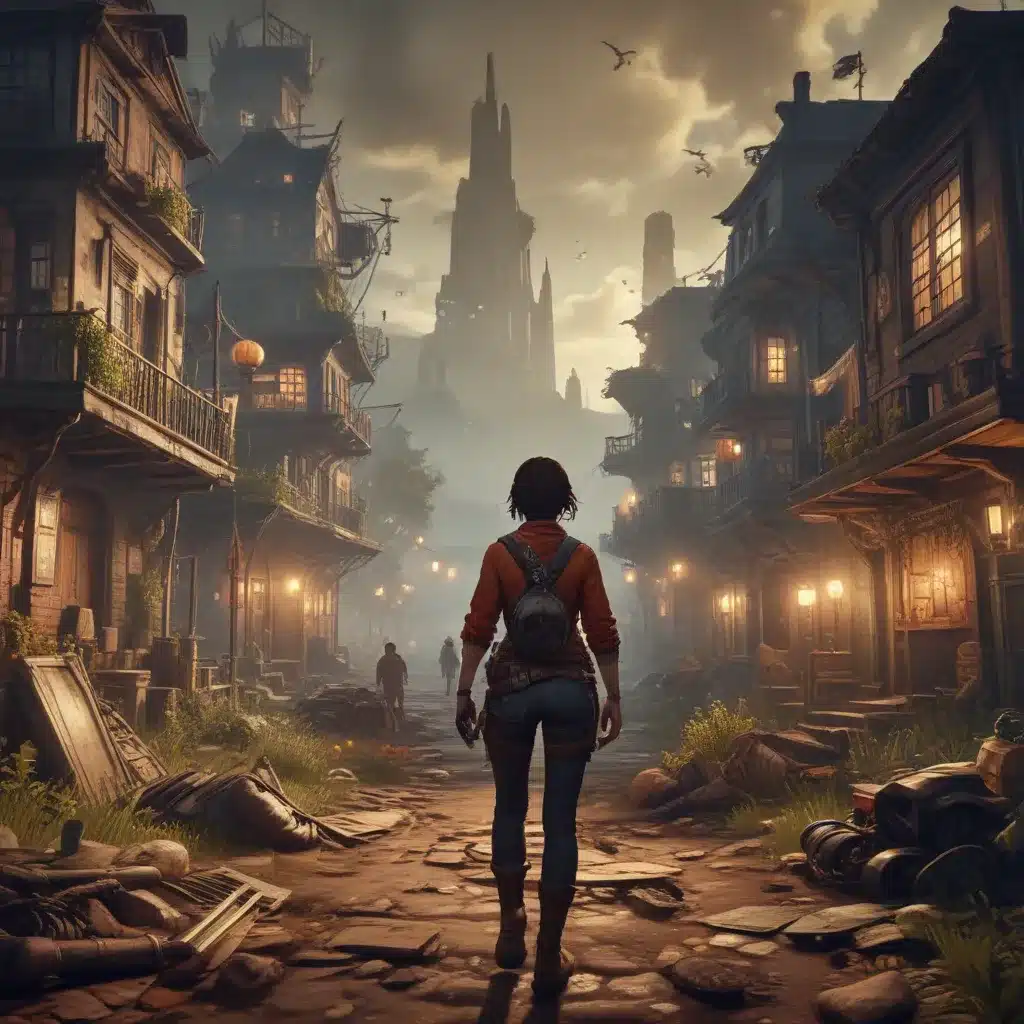
The Power of Storytelling in Gaming
In an industry often dominated by the latest multiplayer craze or addictive gameplay loops, the enduring appeal of narrative-driven games stands out as a testament to the timeless allure of captivating stories and well-developed characters. While the gaming landscape has shifted towards more social, competitive, and service-oriented experiences, a significant portion of players continue to gravitate towards games that prioritize immersive storytelling and meaningful character development.
The reason for this is simple: a well-crafted narrative can elevate a game from a mere series of objectives to an emotionally engaging journey, one that resonates with players on a deeper level. As Pingle Studio rightly points out, “a strong story provides more than just a backdrop for gameplay; it gives context, purpose, and emotional depth to the game world.” This connection between gameplay and narrative is what sets apart the most memorable gaming experiences from the fleeting thrills of mechanics-driven titles.
Crafting Compelling Characters
At the heart of any great narrative-driven game are its characters. Well-developed, multi-dimensional characters with clear motivations and authentic relationships can captivate players, evoking a wide range of emotions and driving deeper engagement. As noted in the Reddit discussion, “characters that experience change—whether emotionally, physically, or psychologically—allow players to feel invested in their journey.”
Take, for example, the evolution of Kratos in the latest God of War games. Once a one-dimensional god of vengeance, Kratos now grapples with the weight of his past decisions, undergoing significant emotional growth as he forms a relationship with his son, Atreus. This dynamic character development adds complexity and depth to the game, transforming it from a simple battle-driven experience into a story about redemption, fatherhood, and the challenges of letting go.
Similarly, the bond between Joel and Ellie in The Last of Us serves as the emotional core of the game, with players witnessing their growth and struggles, making the characters more relatable and the narrative more compelling. By crafting characters that feel genuine and alive, developers can foster a deeper connection between the player and the game world, ensuring that the story leaves a lasting impact.
Integrating Story and Gameplay
One of the hallmarks of truly successful narrative-driven games is the seamless integration of story and gameplay. As the article mentions, “a strong narrative should never feel separate from the mechanics; instead, it should be deeply intertwined with the player’s actions and the game world.”
Games like Dark Souls and Hades exemplify this synergy, where the narrative is woven directly into the player’s exploration and progression. In Dark Souls, for instance, the story unfolds through environmental clues and item descriptions, encouraging players to engage deeply with the game world to uncover its mysteries. Meanwhile, in Hades, the narrative evolves with each player death, ensuring that the story remains connected to the gameplay loop.
The integration of story and gameplay also allows for greater player agency, where the choices and decisions made by the player have a meaningful impact on the narrative. Games like The Witcher 3: Wild Hunt and the Mass Effect trilogy are prime examples of this, where player choices can dramatically alter the course of the story, shaping relationships, quests, and even the ultimate outcome.
Driving Engagement and Replayability
The enduring appeal of narrative-driven games lies in their ability to foster long-term engagement and replayability. As the article highlights, “players who feel emotionally invested in a game’s narrative are more likely to stay engaged for longer periods of time.” This emotional investment comes from a story that resonates with players, offering them characters and plotlines they care about.
Games that excel in storytelling often create memorable moments that keep players coming back, whether to uncover new details, explore character relationships, or experience the emotional highs and lows of the narrative arc. The Witcher 3: Wild Hunt, for instance, encourages players to revisit the game multiple times to explore alternate choices and see how they affect the story and the world.
This extended engagement not only contributes to the longevity of a game but also inspires community discussions, fan theories, and modding activities, further strengthening the game’s lasting appeal. In an industry where players are seeking more immersive and meaningful experiences, the importance of story and character development cannot be overstated.
Partnering with Pingle Studio for Narrative Excellence
At Pingle Studio, we understand the vital role that storytelling and character development play in creating truly engaging and memorable gaming experiences. By partnering with us, developers can focus on crafting compelling narratives and dynamic characters, while we handle the technical implementation and ensure a seamless integration of story and gameplay.
Our team of experts specializes in supporting game developers in bringing their creative visions to life, providing the technical expertise and support needed to bring their stories and characters to life. By leveraging our expertise, developers can prioritize the creative aspects of game development, confident that the technical foundation is solid and their vision is being realized to its fullest potential.
In an industry where player engagement and retention are crucial, investing in narrative-driven experiences can be the key to creating games that stand the test of time. With Pingle Studio’s support, developers can focus on developing immersive stories and unforgettable characters that leave a lasting impact on the gaming world.
Conclusion
In a world where multiplayer and service-oriented games often dominate the headlines, the enduring appeal of narrative-driven games serves as a testament to the power of storytelling and character development in the gaming medium. By crafting compelling narratives that are deeply integrated with gameplay, developers can create experiences that captivate players, evoking a wide range of emotions and fostering long-term engagement.
As the gaming industry continues to evolve, the importance of narrative-driven games will only grow, as players seek out more immersive and meaningful experiences. By partnering with Pingle Studio, developers can unlock their full creative potential, focusing on the storytelling and character development that can truly elevate their games and leave a lasting impact on the gaming community.












